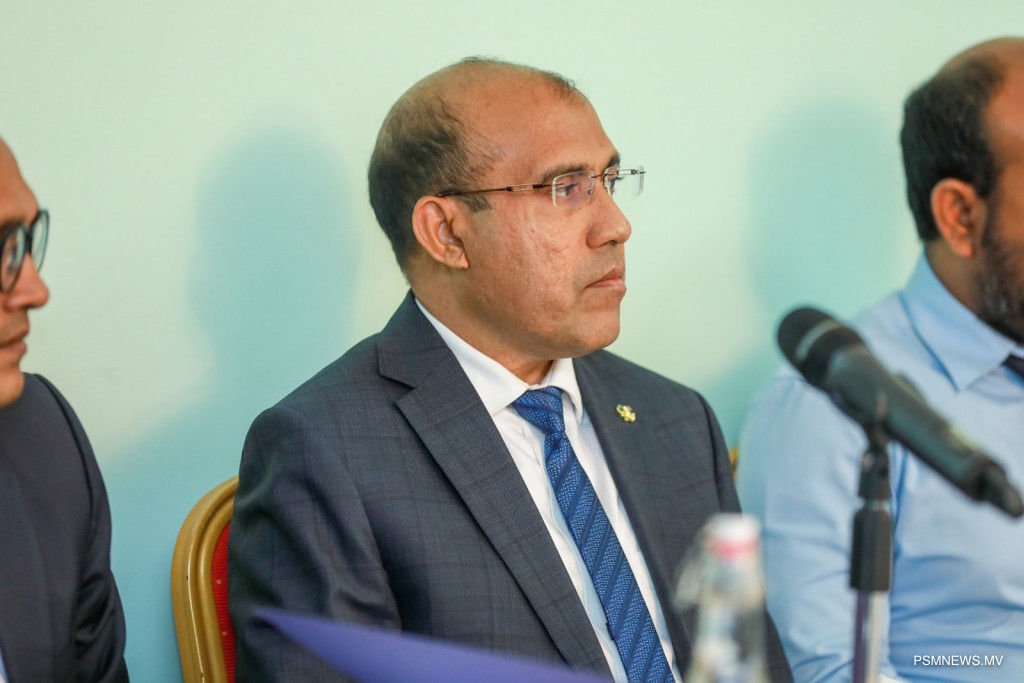Watchdog summons ‘unlawful,’ contends Justice Adam Mohamed
The justice challenged the legitimacy of the watchdog’s ethics probe.

12 Nov 2019, 09:00
Justice Adam Mohamed Abdulla has refused to attend an investigation committee of the Judicial Service Commission, objecting to the watchdog’s refusal to accept his lawyer and contesting the legitimacy of its probe into alleged misconduct.
The watchdog is conducting a probe against four justices in light of a report that flagged 17 instances where the Supreme Court violated the constitution or usurped powers of the executive, parliament, lower courts and independent bodies.
A public hearing scheduled for Tuesday afternoon was cancelled after Justice Adam Mohamed refused to attend. The hearing was previously postponed twice after after the JSC’s investigation committee refused to accept Dr Mohamed Jameel as a lawyer, on the grounds that a case filed by the former vice president challenging his July 2015 impeachment is before the Supreme Court.
Adam Mohamed contended that there was no conflict of interest as he has recused himself from the case but the JSC noted that constitutional cases must be heard by the full bench.
Become a member
Get full access to our archive and personalise your experience.
Already a member?
Discussion
No comments yet. Be the first to share your thoughts!
No comments yet. Be the first to join the conversation!
Join the Conversation
Sign in to share your thoughts under an alias and take part in the discussion. Independent journalism thrives on open, respectful debate — your voice matters.




